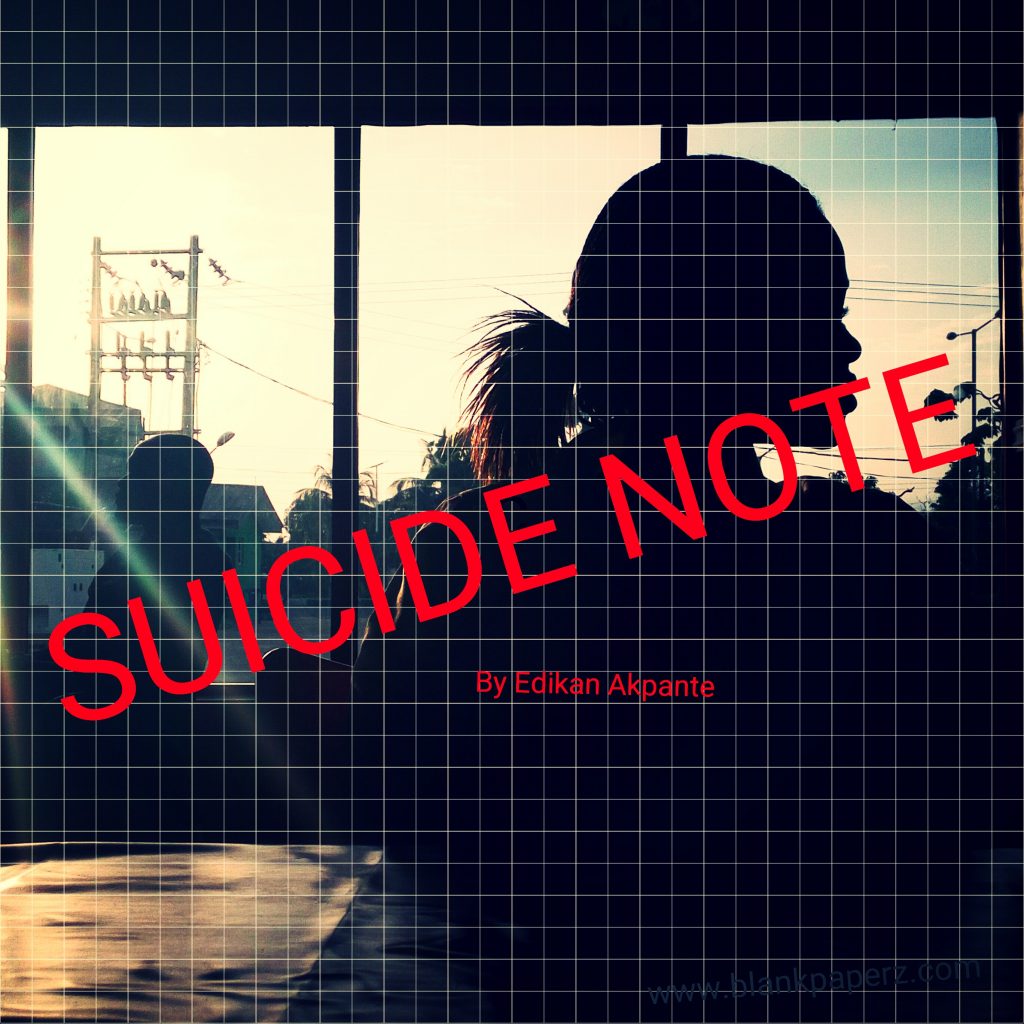It was obvious that my grandfather didn’t like me, whether it was because I was my mother’s daughter or for my being a female child, I didn’t know why. But he didn’t just fancy my existence, moreover, in our society, it is seen as a crime, a sacrilege, for a young one to say her mind to an elder or her own view on any matter as far as an elderly person is concerned. But truly, up to this generation, we are still bearing our forefathers’ names and not even our grand parents’. So why are they so concerned about their names being passed on, when their ancestral fathers are still living on, while their names die with them. Then Lizzy, while I struggled with this thought, something dropped in my mind, that this isn’t just about what they really want but it’s just a belief. And do you know what a belief is?
“It doesn’t just have to be so but it must be so and it is so!” That’s it, all about confusion.
Oh! I mentioned that he included my mother, that I’m my mother’s replica. Their hatred for my mother wasn’t just on the basis of barrenness, like the normal cases of the African woman maltreatments in her matrimonial home. Mine was tribalism!
“I’ve always told Asuquo that people from that woman’s tribe are up to no good!” my father’s people gossiped right in front of me.
“Calabar women rub their husband’s heads and render them weak and useless. spoiling their bellies with Kop-nomi, well mixed in their good delicacies,” they kept on whispering and I listened innocently. Each word, each statement, cutting through my heart. How could they say these about my mother? “Tufiakwa!” My oldest aunty spat. She is an unmarried old lady who rubs all manner of creams to bleach her skin. She seems oblivious to the fact that the creams make her look ugly and aged and her skin like bournvita and cowbell.
“She has turned our son’s head with her juju, but it will wear off, as long as me…” she beat her saggy breast, “as long as I’m alive”. “ehn! See as the children don’t even look like us, Calabar woman, a whore! Those boys have different fathers they are not our son’s children.”
And I wondered why they kept saying “our son” which made me wonder whether they all gave birth to my father. But as I grew up, I came to find out that the family owned the male children while the female children were going to be owned by her husband’s people. And I stopped to wonder who owned my senior aunty then. Since she wasn’t married and the female children were for the husbands.
“mummy, if females are owned by their husbands, then does it mean that aunty isn’t owned by anyone?” I asked my mother.
“Don’t mind the old witch, she’s from the ukana tree, probably owned by one of the wizards in this village.”
My mum and I had laughed about the whole ownership issue. And Of course, they turned to me and told me not to be like my mother, they told me that my mother was a witch and that I shouldn’t be like her.
“Amekob? Am I understood?” my aunty advised me and nodded innocently to this. Lizzy, you might not understand this, but I had a very bitter childhood, though the picture the world chose to see was that of glamour. I was even nicknamed ‘first lady’ and ‘princess’ by everyone who knew me.
To Be Contd Next Week, Same Time, Same Blankpaperz.
Written by Edikan Akpante
About Edikan
My name is Edikan Imo Akpante. A student of English and literary studies, University of Calabar, Calabar. I love telling stories. I believe that through reading a story, one can see oneself in the characters and get to understand oneself better and why he or she acts the way s/he does.



